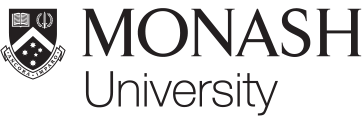Congratulations Jerome and Martin on the award of the ARC Discovery grant
Monash University was the most successful institution in Australia in the 2020 Australian Research Council (ARC) Discovery Projects Scheme (DP21) with more than 22% of the Monash funding awarded to Monash Biomedicine Discovery Institute (BDI) researchers.
Monash BDI researchers have been awarded more than $8 million of the $35.6 million awarded to Monash – playing a key role in the University’s top position nationwide.
The successful applicants were announced on Friday 13 November by the Federal Minister for Education, The Hon. Dan Tehan MP.
With 14 projects receiving funding in the Monash BDI, our researchers continue to push the boundaries of biomedical research to pursue excellence in areas as varied as deciphering cross-talk between innate cytokine receptors, decoding neuronal populations for visually-guided decisions, investigating bacteriophage stability and biology, controlling cell fate transitions and more.
Professor John Carroll, Director of the Monash BDI, said this exceptional result shows the high calibre of researchers at the institute.
“The success in this funding round is yet another example of the excellence of our researchers, at a time when funding is becoming increasingly competitive. I extend my congratulations to all involved,” Professor Carroll said.
The Discovery Projects scheme aims to support excellent basic and applied research and research training by individuals and teams. It supports national and international research collaboration; and is designed to enhance the scale and focus of research in Australian Government priority areas.
Congratulations to all Monash BDI recipients who received funding in the 2020 ARC Discovery Projects Scheme, including:
Professor Marcello Rosa Neuroscience/Physiology
Building a visual world: how brain circuits create and use representations
Professor Trevor Lithgow Infection & Immunity/Microbiology
An investigation into flagellotropic bacteriophage stability and biology
Associate Professor Max Cryle Infection & Immunity/Biochemistry & Molecular Biology
Understanding peptide bond formation in non-ribosomal peptide biosynthesis
Associate Professor Joseph Rosenbluh Cancer/Biochemistry & Molecular Biology
Identification of biological pathways regulated by circular RNAs
Dr Nicholas Price Neuroscience/Physiology
How the brain generates robust behaviour in noisy sensory environments
Associate Professor Anna Roujeinikova Cancer/Infection & Immunity/Microbiology
Structural and functional studies of Helicobacter pylori flagellar motor
Dr Lan Nguyen Cancer/Biochemistry & Molecular Biology
Defining the molecular switches that govern discrete cellular fates
Associate Professor Meredith O’Keeffe Infection & Immunity/Cancer/Biochemistry & Molecular Biology
Deciphering novel cross-talk between innate cytokine receptors
Dr Jerome Le Nours Infection & Immunity/Biochemistry & Molecular Biology
Investigating gamma/delta T cell receptor recognition determinants
Professor Dena Lyras Infection & Immunity/Microbiology
Mechanism of secretion of large clostridial toxins
Associate Professor Fasseli Coulibaly Infection & Immunity/Biochemistry & Molecular Biology
Viral allies: shedding light on beneficial insect viruses
Associate Professor John Boyce Infection & Immunity/Microbiology
Role of Pasteurella surface polysaccharides in pathogenesis and immunity
Professor Marcello Rosa Neuroscience/Physiology
Decoding neuronal populations for visually-guided decision and action
Professor Jose Polo Development & Stem Cells/Anatomy & Developmental Biology, ARMI
How do transcription factors control cell fate transitions?
Monash University Faculties received funding, amounting to more than $35.6 million. Read a short overview here.
Amounting to more than $12 million, read about the 23 Discovery Projects funded across Medicine, Nursing and Health Sciences here.
See the full list of ARC funded projects, and the details of funded Discovery Projects 2021 round 1 here.
Original article: BDI’s research funding success contributes to university’s top position




